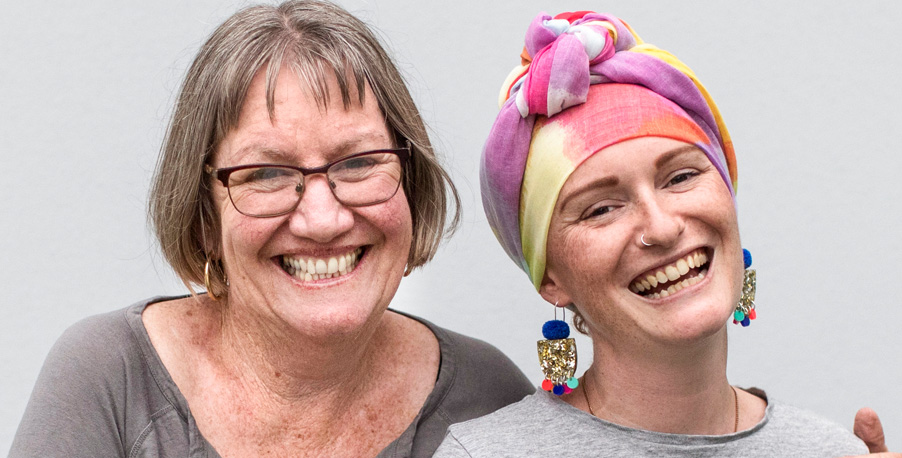As a relative, partner, friend or neighbour of someone with cancer, it’s likely you will be a source of care and support to your loved one throughout their diagnosis and treatment. Whether you’re in a more formal carer role or helping out as they need, it can take time to adjust to the role which may continue to change over time.
For family and whanāu
We know that a cancer diagnosis impacts the whole family. While we understand that your loved one is your priority, it’s important to make time for yourself too.

Medical
Navigating treatment and keeping track of the different information can be overwhelming for the person with cancer. You can provide support by helping them manage their medical journey. This might mean helping keep a diary of symptoms and side effects, taking notes during appointments, managing medications and upcoming appointments, or working with the care team to help make care and treatment decisions for your loved one.
Practical
Someone with cancer can feel like their life is on hold. In addition to managing appointments and treatment, the person with cancer can often be experiencing physical side effects that impact their day-to-day life. Providing practical support such as cleaning the home, preparing meals or helping to care for children are often appreciated. You could also provide transport to and from treatment or ask if there is any regular activities you could take care of for the time being.
Emotional
Sometimes just being there for your loved one and offering your companionship can mean the most. Some ways to provide emotional support include; being a good listener, providing comfort and understanding, communicating with family and friends, or helping access professional support if needed.
Legal and Financial
Helping a person with cancer get their affairs in order can make things much easier for them and their family at a difficult time. This might mean assisting with paperwork or arranging to see a lawyer to make legal arrangements, or helping find the right support to manage the financial impact of cancer.
The role of a carer or support person is rewarding, yet demanding. Whether you’re new to the responsibilities of providing care or you’ve been doing it for some time, it’s important to take the time to look after yourself.
Just as there are many services available to those with cancer, as a carer you can also access professional services and support programs to help make things a little easier.